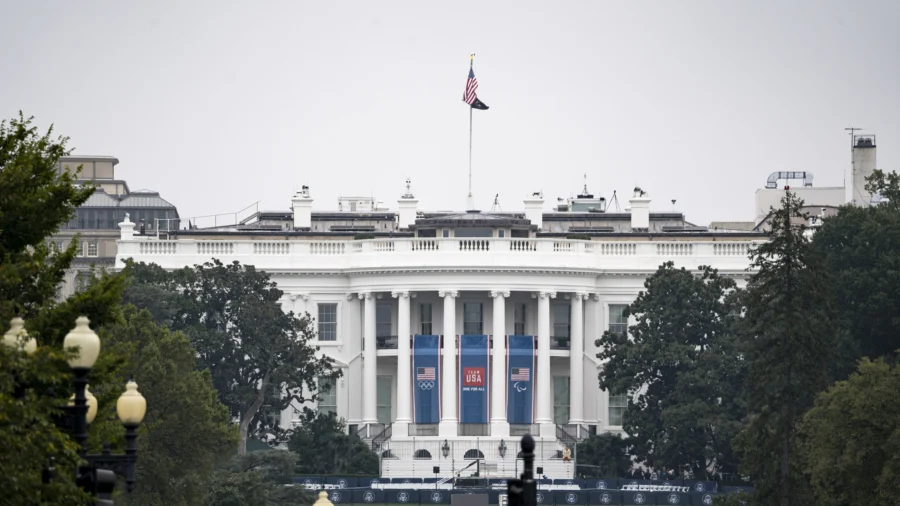President-elect Donald Trump has announced he will appoint William Joseph McGinley to provide legal advice as White House counsel.
“Bill is a smart and tenacious lawyer who will help me advance our America First agenda while fighting for election integrity and against the weaponization of law enforcement,” Trump said in a statement on Nov. 12.
In a statement, Trump noted McGinley’s prior legal roles, which include his time serving as White House Cabinet Secretary in the president-elect’s first term. He has also served as counsel for the Republican National Committee and National Republican Senatorial Committee.
Trump said McGinley “played a major role in our election victory as the RNC’s Outside Counsel for Election Integrity,” adding that he “will work with me as we Make America Great Again!”
The White House counsel can advise the president on a range of issues and is separate from the Department of Justice. Among Trump’s former counsels are Don McGahn and Pat Cipollone.
According to the Federal Register, the counsel’s office may advise on ethical questions and conflicts of interest.
“The Counsel’s Office also helps define the line between official and political activities, oversees executive appointments and judicial selection, handles Presidential pardons, reviews legislation and Presidential statements, and handles lawsuits against the President in his role as President, as well as serving as the White House Contact for the Department of Justice.”
The counsel’s role can include assisting presidents when they face important legal questions. Cipollone, for example, was one of the attorneys helping the president during his first impeachment inquiry.
More recently, current White House counsel Edward Siskel, advocated for President Joe Biden’s decision to assert executive privilege over audio recordings of special counsel Robert Hur’s interviews with the president.
Siskel caught attention for a letter this year in which he said Biden would be asserting privilege and suggested that Republicans were requesting the recordings for “partisan political purposes.”
Recently, a Supreme Court decision clarified the scope of immune conduct for presidents under the U.S. Constitution. A majority held that presidents enjoy immunity from criminal prosecution for a variety of official activities.
The opinion left open whether some activities could be considered official or unofficial. The decision arose from Trump’s appeal of special counsel Jack Smith’s prosecution in Washington. That case, as well as Trump’s three other criminal cases, are coming to an end.
Hanging over Trump’s second term is the prospect of lawsuits from left-leaning groups. The American Civil Liberties Union, which repeatedly challenged Trump during his first term, responded to the president-elect’s victory telling Trump in a full page New York Times ad that it will “challenge you in the courts.”
Trump has yet to announce his pick to lead the Department of Justice, which is responsible for defending U.S. laws and administration policies.
His re-election also brought with it the power to nominate federal judges, including justices of the Supreme Court. While on Trump’s 2016 transition team, McGahn interviewed Judge Neil Gorsuch before Trump nominated him to replace the late Supreme Court Justice Antonin Scalia, Gorsuch told the Senate Judiciary Committee.
Trump announced his pick for White House counsel amid a wave of other prospective appointments—including former Director of National Intelligence John Ratcliffe to serve as the CIA Director, Rep. Mike Waltz (R-Fla.) to serve as national security advisor, and House Republican Conference chair Elise Stefanik (R-N.Y.) to serve as U.S ambassador to the United Nations.
From The Epoch Times

